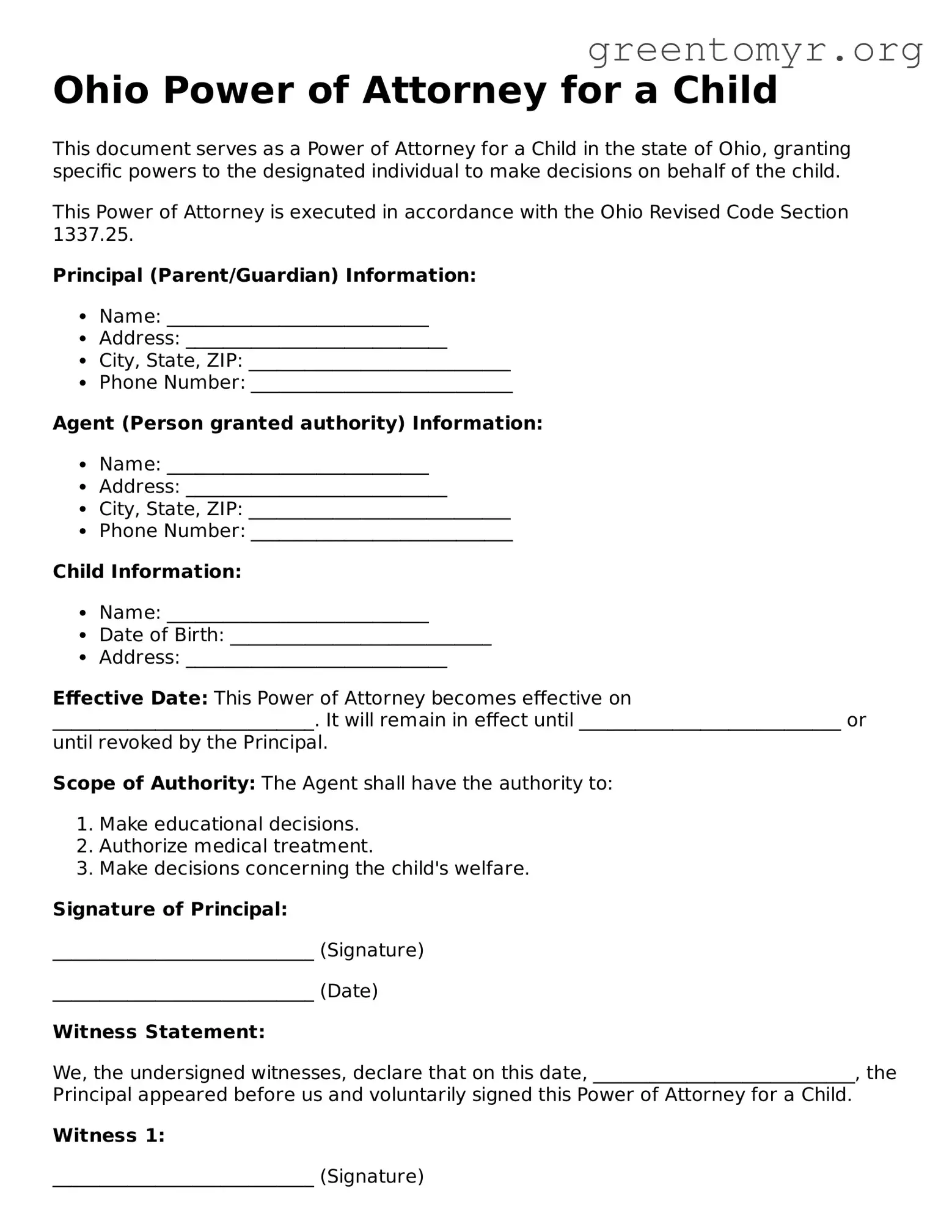Ohio Power of Attorney for a Child
This document serves as a Power of Attorney for a Child in the state of Ohio, granting specific powers to the designated individual to make decisions on behalf of the child.
This Power of Attorney is executed in accordance with the Ohio Revised Code Section 1337.25.
Principal (Parent/Guardian) Information:
- Name: ____________________________
- Address: ____________________________
- City, State, ZIP: ____________________________
- Phone Number: ____________________________
Agent (Person granted authority) Information:
- Name: ____________________________
- Address: ____________________________
- City, State, ZIP: ____________________________
- Phone Number: ____________________________
Child Information:
- Name: ____________________________
- Date of Birth: ____________________________
- Address: ____________________________
Effective Date: This Power of Attorney becomes effective on ____________________________. It will remain in effect until ____________________________ or until revoked by the Principal.
Scope of Authority: The Agent shall have the authority to:
- Make educational decisions.
- Authorize medical treatment.
- Make decisions concerning the child's welfare.
Signature of Principal:
____________________________ (Signature)
____________________________ (Date)
Witness Statement:
We, the undersigned witnesses, declare that on this date, ____________________________, the Principal appeared before us and voluntarily signed this Power of Attorney for a Child.
Witness 1:
____________________________ (Signature)
____________________________ (Printed Name)
Witness 2:
____________________________ (Signature)
____________________________ (Printed Name)
Notarization:
State of Ohio, County of ____________________________
Subscribed and sworn to before me this _____ day of ________________, 20____.
____________________________ (Notary Public)
My Commission Expires: ____________________________
